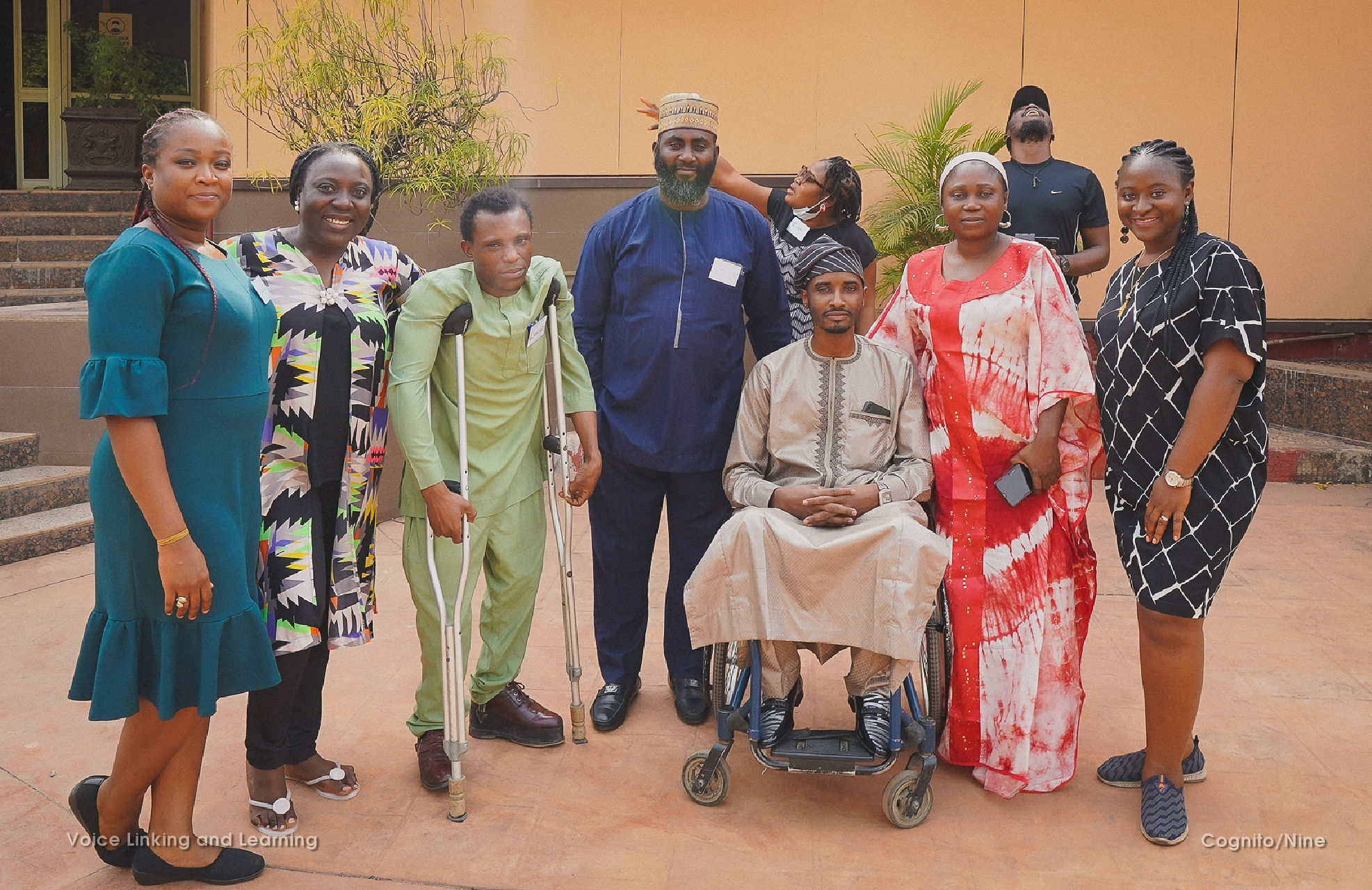Community of Practice on People with Disability (PWD)
The session was anchored by Nnennaya Ogbonnaya (CARE). It began on the note that the correct term to use was “People with Disability” and not “People Living with Disability. The session started with participants highlighting the vast dynamism in the PWD spectrum. The anchor noted that there are people living with various forms of disability which could be physical or non-physical in appearance. It further looked at the spectrum of physical PWDs to include lack of physical mobility, the blind, deaf, and albinism amongst others. Non physical disability such as mental health challenges in Nigeria are usually stigmatized to mean the person is “Mad” therefore preventing them from seeking the help that they need.
Participants noted that there was a lot that needs to be done in Nigeria with regards protecting the rights of PWD and promoting a culture of inclusivity. The session brought to the fore the tendency for society to overcompensate when dealing with PWD, which rather than assist them further emphasizes their disability. A major challenge noted was the need for the government to involve and get input from people with disabilities at every level of decision making on issues that affect them, otherwise it would be an effort in futility. A practical example was given of the ramp built by the hotel to aid in accessibility of PWD but the aim was not achieved because the ramps were too steep and virtually impossible to use. On Learning disabilities in Children, there was the need to raise awareness and the provision of solutions for Children with Autism or learning development disabilities and the creation of a system wherein they can be included in conventional learning systems without compromising their vulnerabilities.
One of the participants, a PWD himself, highlighted his struggles and challenges faced as a PWD. In his bid to challenge the status quo, and empower PWDs in his state, he started a business “Able & Capable Enterprise” which comprised a car wash and a business center. 6 out of the 8 staff employed at the carwash are PWD. He stated that it was an opportunity to give himself and other PWDs who struggled to find jobs a second chance in life and also to prove that they were capable of achieving whatever they set their minds to do given the opportunity to do so. Another challenge birthed an innovative solution which was the provision of a prototype physically challenged friendly toilet facility that caters to the PWDs in Bauchi state. This was because in the past, lack of access ramps for easy mobility and specially designed toilet facilities led to him either soiling himself or having to be driven back home just to use the bathroom.
In addition to ensuring economic empowerment and providing entrepreneurial solutions that can enable PWDs to be financially stable and self-sustaining, participants buttressed the need for sustainable innovative solutions to tackling PWD issues in Nigeria, as well as creating a sustainable platform for awareness and sensitization of projects/ people that work on PWD issues. They further noted the need for an avenue for creating/using/emulating the go-fund-me platform, to connect funders, sponsors, partners and/or supporters with the solution providers in this sector. The session ended with a general consensus by participants on the need for a training and sensitization program developed around ensuring that the society as well as solution providers in the PWD sector are educated in providing the right PWD centric solutions in the right manner to the right spectrums.


Comments
No Comment available!